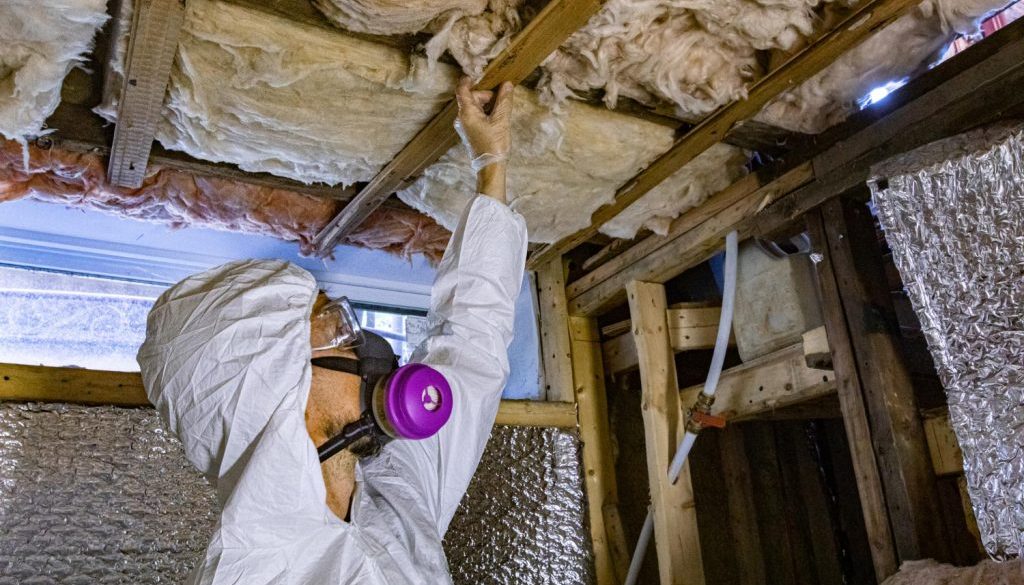Hidden hazardous materials are more common in homes than many people might think. These materials can pose significant risks to health and safety if not properly identified and managed. From the paint cans gathering dust in your garage to outdated cleaning products under your sink, potential hazards lurk in unexpected places. It’s not just about ticking boxes for safety; managing these dangers helps create a healthier living environment for you and your family.
Proper identification and management of these materials are essential for maintaining a safe home. By actively identifying and safely disposing of these hazards, you can prevent accidents and improve your overall home safety. Keeping an eye out for such materials and understanding how to handle them responsibly is a significant step in safeguarding your household. This process begins with knowing what to watch for and learning how to deal with it safely.
Common Hazardous Materials Found in Homes
Even though they are everyday items, some materials in our homes can be surprisingly hazardous if mishandled. Awareness of these dangers is the first step in making your home safer.
– Paints and Solvents: Many homes have old cans of paint, thinners, or solvents tucked away in cupboards or garages. These items can emit harmful fumes over time, especially if the containers are compromised. Ensure they’re stored in a well-ventilated area and check for leaks regularly.
– Cleaning Products: Mixing cleaning products can often produce unexpected and dangerous chemical reactions. Storing outdated cleaners can be just as risky, as their composition might change over time. Always read labels, and dispose of products that are too old or no longer needed.
– Asbestos: Older homes might contain asbestos in components like insulation, pipes, or tiles. It’s crucial to know where it might be found and seek professional advice if you suspect its presence, especially during renovation.
– Batteries and Electronics: Improper disposal of batteries and electronics can lead to chemical leaks and environmental damage. Ensure these items are recycled appropriately to minimize risks.
– Pesticides and Fertilisers: Often stored in garden sheds or garages, these substances can pose risks if mixed or spilled. Follow storage instructions carefully and dispose of them responsibly when no longer needed.
Understanding where these hazards exist in your home is integral to maintaining safety. Being proactive about inspecting and managing these materials can significantly reduce the chances of exposure to harmful effects. This knowledge empowers you to protect your home environment effectively.
How to Safely Identify Hazardous Materials
Knowing how to identify hazardous materials is a critical step in handling them properly. The first thing you should do is familiarise yourself with labels and hazard symbols on products. These symbols provide valuable information about the dangers associated with each material and offer safety instructions. A simple glance at these labels can alert you to existence of toxic contents.
Another effective way to spot potential hazards is by using a comprehensive home safety checklist. This can guide you through your home, room by room, helping to identify areas where risky materials might be hiding. Pay particular attention to areas like the basement or attic, where less frequently used items are stored.
For certain materials, such as asbestos, it’s best to call in professionals. These experts have the proper equipment and experience needed to evaluate and handle potentially dangerous materials. Even if costs are involved, ensuring your safety takes precedence. A little expert advice can make a huge difference in managing risks effectively.
Proper Disposal Methods for Hazardous Materials
Once you’ve identified hazardous materials, proper disposal becomes the key to preventing harm. Each type of material requires its own method of disposal. Start by checking with local disposal services or recycling centres, which often have specific guidelines for different types of waste. These facilities can advise you on whether certain materials can be placed in your regular rubbish or need special handling.
Community hazardous waste collection events offer another convenient option. These events allow you to safely dispose of several kinds of hazardous waste in one go. Keep an eye out for local announcements about such events.
Using skip services like Wilmslow Skip Hire not only simplifies the disposal process but also ensures it’s done safely. Their trained personnel understand regulations and can manage the collection and disposal of hazardous waste efficiently, leaving you with one less worry.
Preventing Hazardous Material Build-Up in the Future
Keeping hazardous materials from building up again is an ongoing task but can be simplified with some mindful practices. Start by choosing eco-friendly products for cleaning and maintenance, cutting down the reliance on potentially harmful chemicals. Many non-toxic alternatives are just as effective and are better for both your health and the environment.
Conducting regular home audits helps you keep track of materials before they become a problem. By doing this routinely, you prevent accumulation and catch potential dangers early.
Remember to store any necessary hazardous materials properly according to the instructions, and always purchase the smallest amount needed. This not only reduces waste but also limits the number of potentially dangerous items in your home.
Keeping Your Home Safe: Final Thoughts
Addressing hidden hazardous materials requires a balanced approach of identification, management, and continuous vigilance. Keeping your living space safe involves regular maintenance checks and wise disposal practices. By doing so, your home can be a haven rather than a hazard zone.
Many families face the challenge of juggling everyday life with home safety. By being aware and staying informed, you take a considerable step towards a safer, healthier living environment. Always prioritise your well-being and embrace practices that support a clean, safe, and responsible lifestyle.
To keep your home in Cheshire safe from hidden hazards, consider using reliable services to manage hazardous waste responsibly. Enviro Skip Hire offers comprehensive solutions, including specialised Wilmslow skip hire, to handle various types of waste efficiently. By choosing expert assistance, you ensure that harmful materials are disposed of properly, safeguarding your home and the environment.




